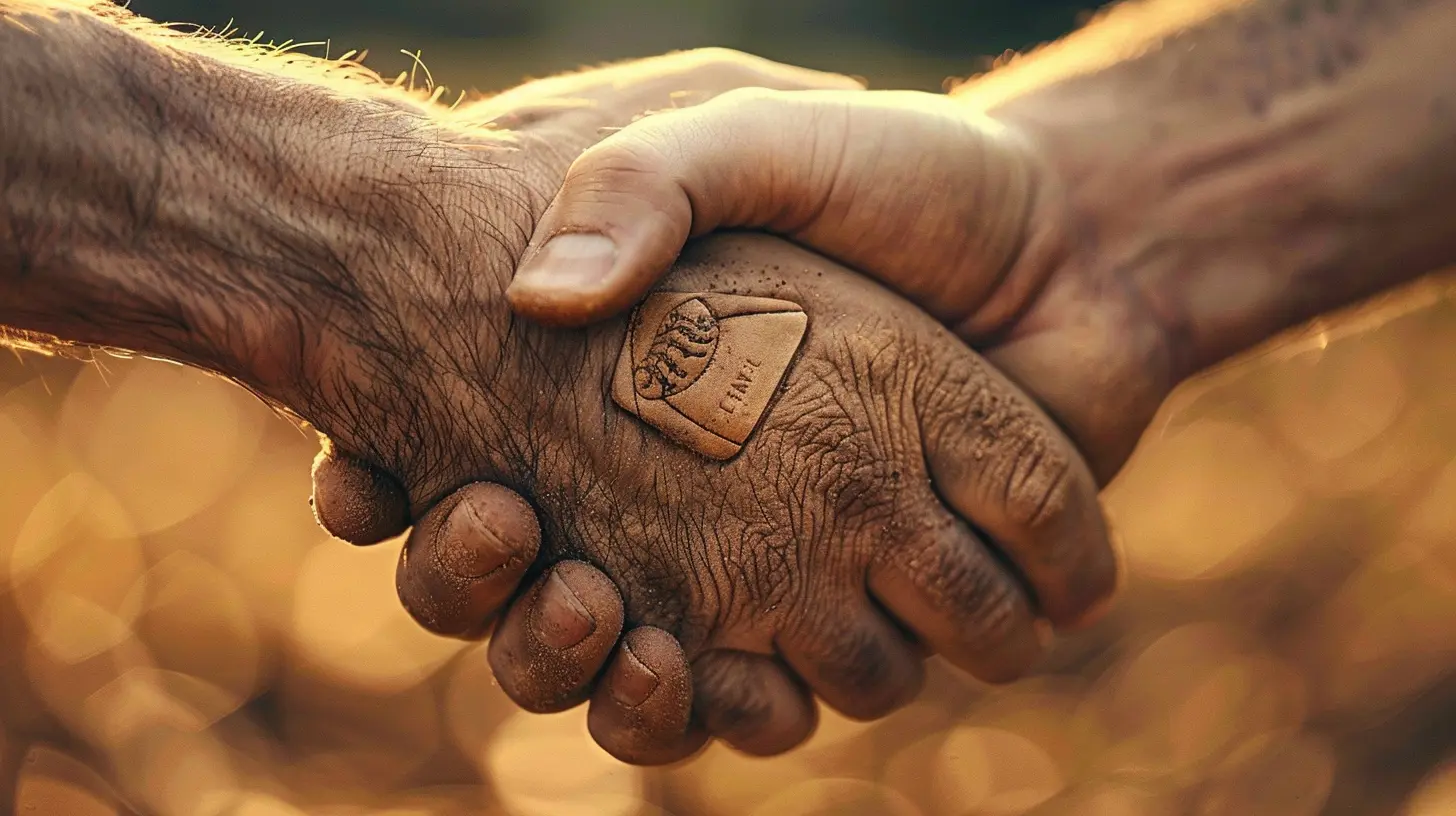Building a Legacy: How Sportsmanship Can Define Your Career
20 May 2025
In the world of sports, you’ve probably heard the phrase, “It’s not whether you win or lose, it’s how you play the game.” While that might sound like something you’d find on a motivational poster, it holds a lot of truth. Sure, winning is great. But how you handle the ups and downs, the victories and defeats, truly defines your legacy. And that’s where sportsmanship comes into play.
Sportsmanship isn't just about shaking hands at the end of the game or giving a nod to the referee. It’s about respect—for your teammates, your opponents, the officials, and the game itself. And believe it or not, the way you carry yourself, the way you treat others on and off the field, has a huge impact on your career. Whether you're a professional athlete, a college player, or even just someone who participates in pickup games, sportsmanship can be the difference between a fleeting moment of fame and a long-lasting legacy.
In this article, we’re going to dive deep into how sportsmanship can define your career, why it matters, and how you can cultivate it to build a legacy that people remember.

What Exactly is Sportsmanship?
Before we can talk about how sportsmanship can shape your career, we need to understand what it is. At its core, sportsmanship is about fairness, ethics, respect, and a sense of fellowship with your competitors. It’s about playing the game the right way, regardless of the outcome. It’s about being humble in victory and gracious in defeat.Think of sportsmanship as the invisible thread that ties the entire sporting world together. Without it, sports would just be a chaotic mess of people trying to win at any cost. But with it, sports become something greater—something that teaches life lessons, builds character, and brings people together.
And here's the kicker: sportsmanship isn’t limited to the field. It spills over into every aspect of life, whether it's in your job, relationships, or even how you handle everyday challenges.

Why Sportsmanship is Just as Important as Talent
Let's be honest—talent is crucial if you're aiming to make it big in sports. You need skills, strength, endurance, and all the other physical attributes that make a great athlete. But here's a little secret: talent alone won't get you very far if you don’t have the right mindset and attitude.You could be the fastest runner, the best shooter, or the most agile gymnast, but if you lack sportsmanship, people will remember the bad attitude long after they’ve forgotten your stats. Take a moment and think about some of the greatest athletes of all time—Michael Jordan, Serena Williams, Lionel Messi. Sure, they were (or are) incredibly talented, but what really sets them apart is how they carried themselves. They didn’t just win; they won with grace. And when they lost, they accepted defeat with dignity.
In contrast, athletes who are known for poor sportsmanship—whether it's throwing tantrums, disrespecting opponents, or blaming others for their mistakes—tend to fade into obscurity, with their bad behavior overshadowing their achievements. No one likes a sore loser or a boastful winner, right?
So, if you're looking to build a legacy that lasts, remember this: your talent will get you noticed, but your sportsmanship will define how you're remembered.

How Sportsmanship Impacts Your Career
1. Earning the Respect of Peers and Fans
Respect is not something you can demand; it’s something you earn. And in sports, one of the quickest ways to earn respect is through good sportsmanship. Whether you’re helping an opponent up after they’ve fallen or acknowledging a referee’s call even if you disagree, these small gestures can leave a lasting impression on both your peers and fans.Think about it: Would you rather be the athlete who’s known for throwing fits and blaming others, or the one who’s known for being a class act, win or lose? Fans are more likely to support athletes who display respect and humility, and teammates will rally around players who lift others up instead of tearing them down.
2. Building Stronger Relationships with Teammates and Coaches
Sportsmanship isn’t just for your opponents; it also extends to your teammates and coaches. Being a good sport means being a team player—someone who puts the team’s success above their own personal glory, who celebrates others’ achievements, and who stays positive even when things aren’t going your way.When you practice good sportsmanship, you create an environment of trust and camaraderie, which leads to stronger relationships within the team. Coaches notice these things, too. They’re more likely to place their trust in athletes who show maturity, respect, and the ability to handle adversity with grace.
3. Enhancing Your Marketability
Let’s face it—sports are a business. And in today’s world, athletes are often seen as brands. Sponsors and organizations are looking for more than just talent; they want athletes who can represent their brand in a positive light.If you're known for being a good sport, you're more likely to attract sponsorships and endorsements. Companies don’t want to be associated with athletes who have a reputation for bad sportsmanship—those viral videos of athletes losing their cool can be career-enders.
On the flip side, athletes who embody sportsmanship are seen as role models, and brands love to align themselves with people who reflect their values. So, if you want to maximize your opportunities both on and off the field, sportsmanship is key.
4. Longevity in Your Career
Here’s the thing: sportsmanship can actually extend your career. Why? Because when you treat others with respect, they’re more likely to welcome you back, whether it’s for another season or even a new role within the sport (like coaching or broadcasting).Athletes who burn bridges with poor sportsmanship often find themselves isolated or ostracized from the sports community. But those who build their careers on respect and integrity are often given opportunities long after their playing days are over.
5. Leaving a Meaningful Legacy
At the end of the day, your career will eventually come to an end. The question is: What will people remember about you? Will they remember you as someone who was only focused on winning, or will they remember you as someone who made the game better for everyone?Sportsmanship is the foundation of a lasting legacy. It’s what turns athletes into legends. People will forget your win-loss record, but they’ll never forget how you made them feel—whether it was through a kind gesture, an inspiring speech, or simply the way you played the game with honor.

How to Cultivate Sportsmanship
Now that we’ve established why sportsmanship is so important, let’s talk about how you can cultivate it.1. Lead by Example
One of the best ways to show sportsmanship is to lead by example. Whether you’re the team captain or just a player on the bench, your actions speak louder than words. Be the person who helps others up, congratulates the other team, and stays composed under pressure. When you set the tone, others will follow.2. Stay Humble
No one likes a bragger. Whether you’ve just scored the winning goal or broke a personal record, stay humble. Celebrate your achievements, but do so with grace. And when you lose, accept it with dignity. Remember, how you handle success is just as important as how you handle failure.3. Respect Everyone
This might sound obvious, but it’s worth repeating: Respect everyone. That means your teammates, your opponents, the referees, and even the fans. It’s easy to get caught up in the heat of the moment and let emotions take over, but maintaining respect is critical to being a good sport.4. Keep the Bigger Picture in Mind
Remember, sports are about more than just winning and losing. They’re about pushing yourself, working with others, and becoming a better person. Keep the bigger picture in mind, and don’t let the desire to win cloud your judgment. At the end of the day, sportsmanship is what makes the game worth playing.Conclusion: Your Legacy is in Your Hands
Building a legacy in sports isn’t just about racking up wins and trophies; it’s about how you conduct yourself throughout your career. Sportsmanship is the thread that ties everything together. It’s what makes people respect you, what strengthens your relationships, and what opens doors for future opportunities.So, the next time you step onto the field, court, or track, remember this: You’re not just playing to win; you’re playing to build a legacy. And sportsmanship is the key to making sure that legacy lasts.
all images in this post were generated using AI tools
Category:
SportsmanshipAuthor:

Ruben McCloud
Discussion
rate this article
3 comments
Zephyrion McMahan
True greatness is measured not just by wins, but by character!
June 2, 2025 at 4:37 AM

Ruben McCloud
Absolutely! Character shapes not only how we play but also how we impact others, leaving a lasting legacy beyond the scoreboard.
Tristan McNeely
Great insights! Sportsmanship truly shapes careers, fostering respect and integrity both on and off the field.
May 23, 2025 at 11:25 AM

Ruben McCloud
Thank you! I'm glad you found the insights valuable. Sportsmanship indeed plays a crucial role in shaping not just athletes, but leaders in all fields.
Destiny Reed
Love this! Sportsmanship truly shapes our journey!
May 21, 2025 at 4:30 AM

Ruben McCloud
Thank you! I'm glad you resonate with the message about the impact of sportsmanship on our journeys.



